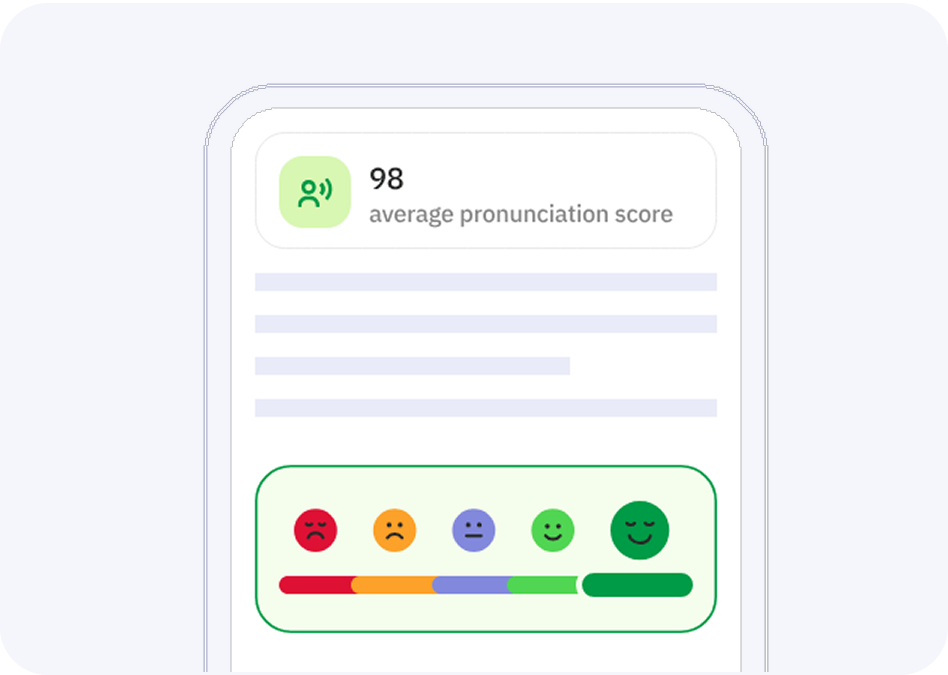Practice English Speaking
English holds the title of a global lingua franca in business, travel, and international relations, making effective communication skills in English a vital asset. For non-native speakers, the ability to speak English fluently opens doors to countless opportunities around the world. However, many learners find that practicing English speaking is often more challenging than learning grammar or writing. This is why innovative solutions like Talkpal AI have revolutionized the way individuals practice speaking. Engaging in regular practice not only boosts confidence but also enhances comprehension and fluency. Here, we explore various strategies to optimize your English-speaking practice for real-world applications.

The talkpal difference

Personalized Education
Every student has a distinct approach to acquiring knowledge. Through Talkpal technology, we analyze the study habits of millions of users at the same time. This data helps us craft highly effective educational tools that are fully tailored to fit the personal preferences and goals of each individual.

Cutting-Edge Technology
Our main goal is to lead the way in providing accessible and tailored educational experiences for all users through recent breakthroughs in tech. We utilize the latest innovations in artificial intelligence to ensure that everyone can access a sophisticated platform designed to help them master a new language efficiently.

Making Learning Fun
We believe that studying should be an entertaining process. Since maintaining momentum with online courses can often be difficult, we designed Talkpal to be incredibly captivating. The experience is so immersive that users frequently prefer practicing their speaking skills with our AI tutor over playing video games.
LANGUAGE LEARNING EXCELLENCE
The most efficient way to learn a language
Try Talkpal for freeWhy Practice English Speaking?
1. Embrace Technology for Practice
In this digital age, leveraging technology is key to enhancing language learning. Tools like Talkpal AI offer interactive practice that simulates real-life conversations, providing instant feedback and tailored lessons. Practicing English speaking through such platforms allows you to hear your pronunciation and converse with an AI, making it a safe space to make mistakes and learn from them. This constant interactive engagement is crucial in developing confidence and fluency, offering a consistent and accessible method for daily practice.
2. Join English Speaking Clubs
Joining an English speaking club can immensely benefit learners looking to practice their speaking skills. These clubs provide a supportive environment where everyone is eager to learn and improve. Typically, speaking clubs offer various activities that involve discussions, debates, and sometimes even role-playing sessions. Participating in these activities can build vocabulary, refine pronunciation, and teach the nuances of spontaneous conversation. Moreover, feedback from peers and more experienced speakers adds invaluable insights into personal speaking styles.
3. Language Exchange Partners
Partnering with a language exchange buddy is another effective strategy for practicing English speaking. This setup allows two individuals who are looking to learn each other’s native languages to practice speaking with one another. This reciprocal arrangement not only aids in improving conversational skills but also helps in understanding cultural contexts and idiomatic expressions, which are crucial for mastering any language. Websites and apps dedicated to language exchange can connect you with partners globally, offering diverse opportunities for practice.
4. Daily Speaking Habits
Integrating English speaking into your daily routine is a practical approach to improve fluency over time. Simple practices like narrating your daily activities in English, or setting aside specific times to speak only in English, can significantly enhance your proficiency. This method helps in thinking in English rather than translating thoughts from your native language, which is a common barrier for many learners. Regular practice makes speaking a natural component of your communication skills.
5. Utilize Media and Entertainment
Watching English movies, listening to podcasts, and following English TV shows are entertaining ways to practice English speaking. Try to repeat phrases, mimic expressions, and even role-play different characters to improve intonation and rhythm. This exposure not only makes you familiar with various accents but also improves your listening skills, which are integral to effective speaking.
6. Record and Review Your Speech
Recording yourself while speaking can reveal a lot about your language use and areas for improvement. Tools like Talkpal AI allow you to compare your recordings with native speakers, providing practical insights into your pronunciation and fluency. Regular reviews of your recordings can help track your progress and identify persistent issues in your spoken English, making your practice sessions more directed and effective.
7. Engage in Public Speaking
Taking the challenge to speak in more formal or public settings can accelerate your English speaking skills. Whether it’s a presentation at work, a speech at a community center, or a talk at a local meetup, public speaking pushes you to prepare thoroughly, thus improving your vocabulary and sentence structuring. The pressure to perform well in front of an audience also boosts mental alertness and speech clarity.
8. Practice With Interactive English Learning Apps
Many apps are designed to help learners practice English speaking interactively. Features like speech recognition, spoken language exercises, and interactive games make these apps appealing and effective for learners at all levels. Talkpal AI, for instance, integrates these features to provide a holistic approach to language learning, emphasizing practical speaking skills.
9. Attend Workshops and Language Immersion Retreats
For those who prefer a more structured learning environment, workshops and language immersion retreats can be very beneficial. These are often led by experienced educators who provide structured learning experiences that are immersive and intensive. Such environments force learners to use English consistently, which can dramatically improve speaking skills within a short period.
10. Feedback and Continuous Improvement
Lastly, never underestimate the power of constructive feedback. Whether it’s from a teacher, a peer, or an AI-driven tool like Talkpal AI, getting feedback is crucial for identifying weaknesses and refining your speaking abilities. Embracing critiques and working on them systematically can transform your practice sessions and lead to significant improvements in your overall communication skills in English.
By systematically engaging in these practices, learners can significantly enhance their English speaking skills, opening up new horizons both professionally and personally.
The most efficient way to learn a language
Try Talkpal for freeFrequently Asked Questions
Why is it important to practice English speaking regularly?
What are some effective methods to practice English speaking?
How can tools like Talkpal AI enhance English speaking practice?
How much time should I dedicate to practicing English speaking daily?
Can I improve my English speaking if I don't live in an English-speaking country?







